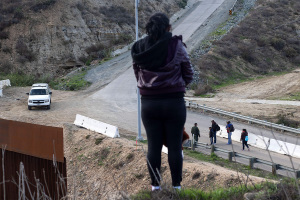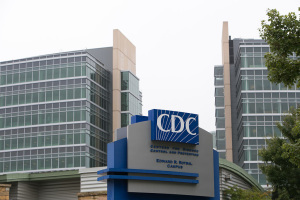54 New Congregations Established Under the CBF
ATLANTA – “Not everyone is called to do this.”
The leader of CrossRoads Fellowship in Waco, Texas said of church planting.
"You have to have the faith that God is going to lead you through. And you've got to be a leader. The gift of leadership is very necessary. You have to know how to resource and network,” added Steve Abbes.
CrossRoads Fellowship held its first service June 1 with 15 people. Six months later, the church has 72 members and is preparing to baptize 15 more people. CrossRoads is just one of the 54 congregations established by the Cooperative Baptist Fellowship’s church starting ministry since 1999. These churches include ethnic congregations for Koreans, African Americans and Liberians.
According to Phil Hester, the CBF’s associate coordinator for church starts, there are several steps taken before planting a church. The first step is to evaluate the need for a church within a certain community. The next is to determine whether there is enough financial support – typically, $50,000 to $200,000 is needed to plant a church. The final step is to recruit a charismatic pastor. When all these steps are met, a successful church can be planted.
Crossroads, for example, which began its ministry in June with 15 people, grew to 72-member congregation; next month, 15 more will be baptized.
The director of the church multiplication center for the Baptist General Convention of Texas, Abe Zabeneh, elaborated on the third step of church planting.
"You need a good church planter and the right pastor," he said. "Choosing the right pastor for the church is most essential to the life and growth of the church. You also need solid prayer support and quality training and development."
The Baptist General Convention of Texas is partnering with the Fellowship to start three churches, in San Antonio, Belton and Midlothian.
Hester has developed partnerships with CBF organizations in 18 states and regions to help research and fund church starts. In larger states like Alabama, Tennessee, Georgia, Florida and North Carolina, he works with local missions coordinators. CBF also partners with institutions like the National Ministries of the American Baptist Churches USA, the Baptist General Convention of Texas and the Virginia Baptist Mission Board.
According to Hester, much of the Fellowship's early success in church planting is due to the commitment of one congregation.
"Dunwoody Baptist Church in Atlanta was the visionary for church starts," said Hester.
In 1999, Dunwoody Baptist sold a piece of land and donated $1 million to endow the CBF's position of associate coordinator for church starts. Hester assumed the position in 2000.
Daniel Vestal, the Fellowship's national coordinator, welcomed the new "enthusiasm" for church planting among Fellowship members.
"There is a growing awareness and awakening in Cooperative Baptist Fellowship concerning the strategic importance of church planting,” said Vestal.
Abbe agreed. Even within its young congregation, members are leaving to help start churches. Three weeks after its first service, several members traveled to Brazil to start a church. CrossRoads recently made a 10-year commitment to plant more churches in Brazil. Abbe said a group of members will return to Brazil next June to help construct a church building and train leaders.
The Cooperative Baptist Fellowship, a national organization of moderate Baptists, counts approximately 1,800 churches that fund its missions and ministries.




























